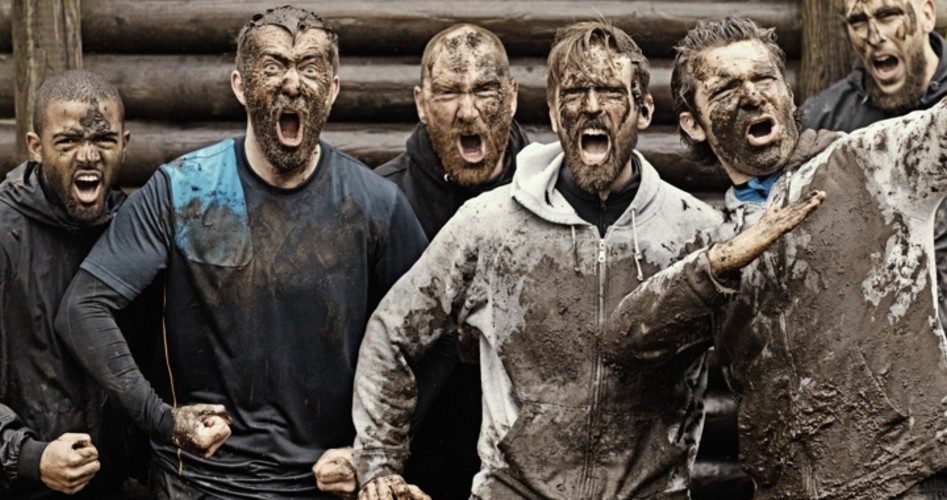
The American Psychological Association (APA), the trade group that represents America’s psychology professionals, has come out with guidelines to help psychologists treat men impacted by the “harmful” effects of “traditional masculinity.”
Noting that men commit 90 percent of the homicides in the United States, are 3.5 times more likely than women to die by suicide, and are more likely than girls to be diagnosed hyperactive as children, the APA says that its new Guidelines for Psychological Practice With Boys and Men draw “on more than 40 years of research showing that traditional masculinity is psychologically harmful.”
According to the APA, the bulk of that research demonstrates that “traditional masculinity — marked by stoicism, competitiveness, dominance, and aggression — is, on the whole, harmful,” and that men “socialized in this way are less likely to engage in healthy behaviors.”
Dr. Fredric Rabinowitz, one of the psychologists responsible for the guidelines, commented: “Because of the way many men have been brought up — to be self-sufficient and able to take care of themselves — any sense that things aren’t OK needs to be kept secret. Part of what happens is men who keep things to themselves look outward and see that no one else is sharing any of the conflicts that they feel inside. That makes them feel isolated. They think they’re alone. They think they’re weak. They think they’re not OK. They don’t realize that other men are also harboring private thoughts and private emotions and private conflicts.”
Dr. Ryon McDermott, another psychologist responsible for the guidelines, said that while traits such as stoicism and self-sacrifice are important in some circumstances, such as on the battlefield, those traits can be detrimental in personal and family relationships. “There are times when you need to be able to power through,” McDermott said. “But if you only do that, and you believe that if you don’t do that then you’re somehow less worthy as a person, that’s where you have a problem.”
The APA said that it is the role of psychologists “to encourage men to discard the harmful ideologies of traditional masculinity (violence, sexism) and find flexibility in the potentially positive aspects (courage, leadership).”
Predictably, the APA notes that “transgender issues are at the forefront of the cultural conversation,” and thus must help to hone the meaning of today’s masculinity. “What is gender in the 2010s?” asks McDermott. His answer: “It’s no longer just this male-female binary.”
The APA notes that while “there is now more flexibility in gender norms than 30 years ago, according to Liang and McDermott, boys and men who identify as gay, bisexual or transgender still face higher-than-average levels of hostility and pressure to conform to masculine norms.”
The group says that telegraphing to men “that they’re adaptable, emotional and capable of engaging fully outside of rigid norms” is what the new guidelines are all about.
While the new guidelines are certain to garner approval among those attempting to blur the cultural lines between the sexes, there has been plenty of pushback from those happy with traditional gender parameters. Writing in the American Conservative, Christian author Rod Dreher noted that while the guidelines do include some helpful tidbits, “given the social justice warrior jargon throughout, I suspect this is mostly about psychologizing the gelding of American males. I do not trust Ryon McDermott, PhD, to decide what is and is not healthy masculinity.” He added: “The more I think about it, the more Soviet this seems. Dissent from gender ideology (not just the transgender stuff, but the establishment’s view of what men and women are)? Well, then you must be insane. Expert opinion says so!”
Another Christian commentator, Erick Erickson, tweeted that the guidelines appear to have “way more to do with the left capturing an institution than in legitimate medical concerns.”
And writing in the National Review, columnist David French noted that suppressing masculine behavior in boys is already the name of the game in public schools. “Male children are falling behind in school not because schools indulge their risk-taking and adventurousness, but often because they relentlessly suppress boys and sometimes punish boys’ essential nature, from the opening bell to the close of the day,” wrote French. “Especially in fatherless homes, female-dominated elementary-school experiences often mean that boys are exposed to few — if any — male role models, and male restlessness is therefore viewed almost entirely as a problem to be solved rather than a potential asset to be shaped.”
Image: Lorado via iStock / Getty Images Plus


